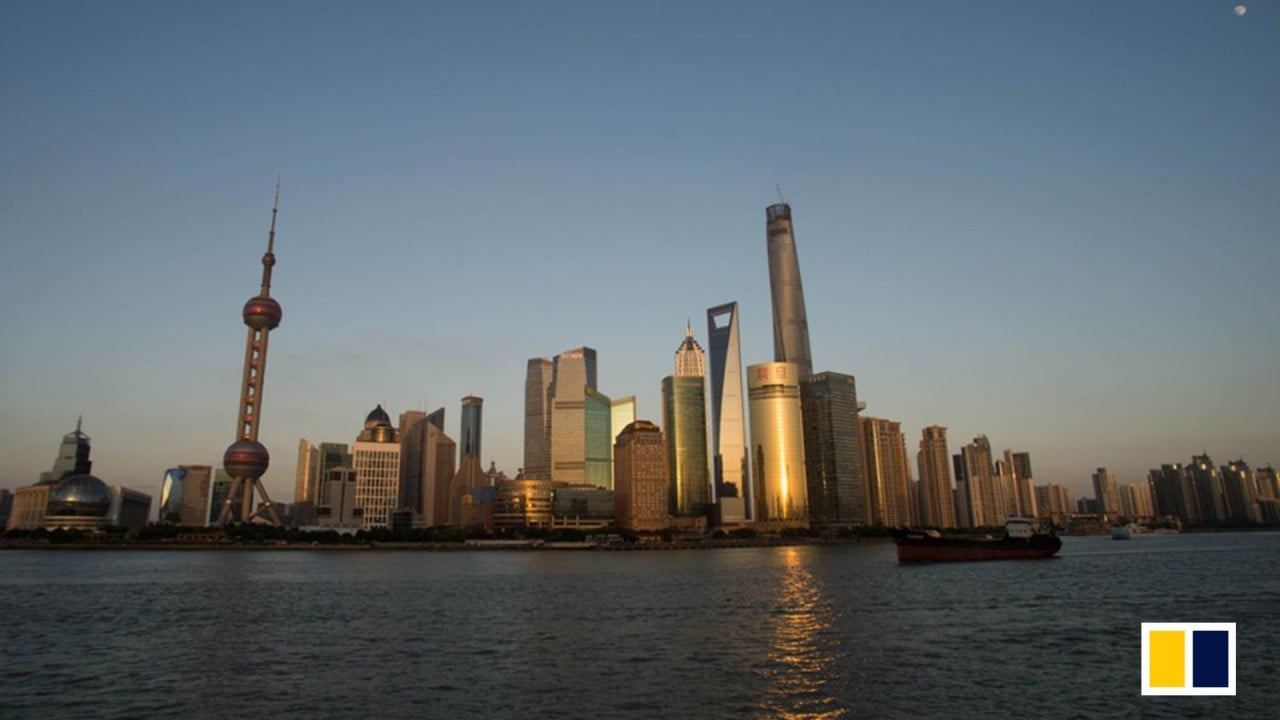
Hong Kong, mainland stocks surrender gains as concern about China’s banks outweighs Xiaomi, Alibaba rally and steady August economic data
- Hong Kong and China stocks post third straight month of gains in August despite declines on Monday
- Sentiment soured by new round of policy tightening aimed at highly-leveraged property developers, which could affect banks’ asset and loan quality
The stock markets in Hong Kong and mainland China gave up early gains and ended lower on Monday, with concern about the outlook for Chinese banks eclipsing optimism around technology stocks and upbeat economic data.
Both markets, however, posted a third straight month of gains in August, as investors welcomed reforms introduced by the Shenzhen Stock Exchange even as they digested US-China tensions. A dovish US Federal Reserve also helped push global markets higher.
The Hang Seng Index rose as much as 1.7 per cent in the morning session, before reversing to a 1 per cent decline and closing at 25,177.05. The benchmark gained 2.4 per cent this month, following a 0.7 per cent gain in July and a 6.4 per cent jump in June. The Hang Seng Tech Index, which tracks the 30 biggest technology companies listed in Hong Kong, fell 0.3 per cent, but ended the month 5.4 per cent higher.
On the mainland, the Shanghai Composite Index surrendered gains of as much as 1.1 per cent to close 0.2 per cent lower at 3,395.68. The benchmark added 2.6 per cent for the month, following a 10.9 per cent surge in July and a 4.6 per cent increase in June. The Shenzhen Component Index dipped 0.7 per cent, and the ChiNext Index of start-ups in Shenzhen dropped 1.1 per cent.
Sentiment in the A-share market soured during the day, as investors focused on a new round of policy tightening introduced by Beijing to guide China’s highly-leveraged property developers. These companies have been directed to cut down debt, as reported during earnings calls as well as by the Chinese press over the weekend.

01:58
40 years of opening up and reform: How property became a driving force in the economy
“Deleveraging by developers will reduce some bubbles in China’s housing market, which will damage Chinese banks’ asset quality and loan quality, as many developers are financed by bank loans,” said Alan Li, portfolio manager at Atta Capital.
As it is, over the weekend four of China’s biggest banks reported slumps of between 10 per cent and 12 per cent in their first-half profits compared with the same period last year. This worried investors and weighed on sentiment in both China and Hong Kong, Li said.
Hong Kong-listed biotech firm Henlius edges closer to Star Market listing
Suppliers to Huawei Technologies also dropped on worries that the Chinese telecommunications and smartphone giant might have to exit the smartphones market, following the latest US sanctions, which will prevent it from buying semiconductors made with US equipment or software from September.
Sunny Optical Technology, which supplies lenses to Huawei, fell 2.7 per cent to HK$114.9 on Monday. AAC Technologies, a supplier of acoustic components, dipped 0.1 per cent to HK$48.9.
Internet companies bucked the downward trend to outperform. Xiaomi, the Chinese smartphone and home appliances giant, and Alibaba Group Holding, China’s biggest e-commerce company, were among the top gainers on Monday. Both companies were tapped on August 14 to become components of the Hang Seng Index, and will join the benchmark on September 7.
HKEX CEO wants to create another wave of mega IPOs to outpace Nasdaq
Xiaomi surged 4.4 per cent to an all-time high of HK$23.5, bringing its gains this month to a stunning 59 per cent. Investors piled in on hopes that the company will be able to grab some market share from Huawei, which has dominated China’s market with nearly half of the market share.
Alibaba, which owns South China Morning Post, also hit a historical high, rising by 2.1 per cent to HK$282.8.
The company, whose parent also owns Sweden’s Volvo Cars, is set to become the first carmaker to be listed on the one-year-old technology board in Shanghai. It plans to issue 1.7 billion new shares, which could amount to HK$27 billion (US$3.5 billion) based on its Friday closing price of HK$15.74.
Huanxi Media, a Hong Kong-based film producer, jumped by as much as 22.4 per cent before giving up some of its gains to end 5.3 per cent higher at HK$1.6, after announcing a partnership with Bilibili, the Chinese online video platform giant. Huanxi, which produced the first Chinese blockbuster that was released entirely online during the Lunar New Year holiday after the coronavirus forced cities into lockdowns, reached an agreement to issue 347 million new shares to Nasdaq-listed Bilibili for HK$513 million, at the price of HK$1.48 apiece. The new shares will amount to 9.9 per cent of the company’s overall stake after the issuance, Huanxi said in a stock exchange filing early on Monday.
The film producer has also entered a five-year collaboration agreement with two subsidiaries of Bilibili, which will allow the video platform to stream its content and share the income generated, according to the filing. Bilibili could enjoy priority access and invest in Huanxi’s future film and television projects, and develop derivative content based on Huanxi’s projects.
China trots out The Eight Hundred to rescue box office as Covid-19 lockdown ends
“We still expect a recovery from [the second half of 2020] driven by pent-up demand and countercyclical adjustments,” China Renaissance analysts led by Bruce Pang said in a note on Monday, adding that they expected “more proactive fiscal moves rather than targeted monetary easing” in the rest of this year from the Chinese government.

